- Home
- Margaret Atwood
Cat's Eye Page 5
Cat's Eye Read online
Page 5
The old emptiness of Toronto is gone. Now it's chock-full: Toronto's bloating itself to death, that much is clear. The traffic is astonishing, there's honking and barging, people drive right out to the middle of the intersections and sit there when the light changes. I'm glad I'm on foot. Every building I pass down here among the warehouses seems to cry Renovate me! Renovate me! The first time I saw the word Reno in the real estate section I thought it meant the gambling resort. Language is leaving me behind.
I hit the corner of King and Spadina, walk north. This used to be where you came to get wholesale clothing, and it still is; but the old Jewish delis are disappearing, replaced by Chinese emporia, wicker furniture, cutwork tablecloths, bamboo wind chimes. Some of the street signs are subtitled in Chinese, multiculturalism on the march, others have Fashion District underneath the names. Everything is a district now. There never used to be districts.
It comes over me that I need a new dress for the opening. I've brought one with me, of course; I've already pressed it with my travel iron, clearing a corner of Jon's workbench for the ironing board, folding a towel across it. This dress is black, because black is the best thing for such occasions: a simple, sober black dress, like those of the women who play cellos in symphony orchestras. It doesn't do to outdress the clients.
But the thought of this dress is depressing to me now. Black attracts lint, and I've forgotten my clothes brush. I remember the Scotch tape ads from the forties: mummify your hand in inside-out Scotch tape, defuzz your clothing. I think of myself standing there in the gallery, surrounded by one-of-a-kind boutique wear and real pearls, widow-colored and linty where the Scotch tape has missed. There are other colors, pink for instance: pink is supposed to weaken your enemies, make them go soft on you, which must be why it's used for baby girls. It's a wonder the military hasn't got onto this. Pale-pink helmets, with rosettes, a whole battalion, onto the beachhead, over the top in pink. Now is the time for me to make the switch, I could use a little pink right now.
I cruise the cut-rate windows. Each one is like a shrine, lit up from within, its goddess on display, hand on hip or leg thrust out, the faces beige and inaccessible. Party dresses have come back, bows and flamenco ruffles, straplessness and crinolines, puffed sleeves like cloth marshmallows: everything I thought was left behind forever. And miniskirts too, as bad as ever, but I draw the line at those. I didn't like them the last time around either: too much underpants. I can't wear the ruffled things, I'd look like a cabbage, and not the strapless ones either, not with my collarbone high and dry, my hen's-foot elbows sticking out. What I need is something vertical, maybe a little draped.
A SALE sign lures me in. The name of this store is The Sleek Boutique, though it's not really a boutique: it's crammed full of ends-of-line, low on overhead. It's crowded, which pleases me. Salesladies intimidate me, I don't like to be caught shopping. I riffle furtively through the SALE rack, bypassing sequins, angora roses, gold thread, grubby white leather, looking for something. What I'd like is to be transformed, which becomes less possible. Disguise is easier when you're young.
I take three things to the fitting room: salmon with dollar-sized white polka dots, electric blue with satin inserts, and, to be on the safe side, something in black that will do if all else fails. The salmon is what I'd really like, but can I handle the dots? I slip it on, zipper and hook it, turn this way and that, in front of the mirror which is as usual badly lit. If I ran a store like this I'd paint all the cubicles pink and put some money into the mirrors: whatever else women want to see, it's not themselves; not in their worst light anyway.
I crane my neck, trying to get the rear view. Maybe with different shoes, or different earrings? The price tag dangles, pointing to my rump. There are the polka dots, rolling across a broad expanse. It's amazing how much bigger you always look from the back. Maybe because there are fewer distracting features to break up the wide monotony of hill and plane.
As I turn back, I see my purse, lying on the floor where I put it, and after all these years I should know better. It's open. The cubicle wall comes down to only a foot above the floor, and back through the gap a noiseless arm is retreating, the hand clutching my wallet. The fingernails are painted Day-Glo green.
I bring my shoeless foot down hard on the wrist. There's a shriek, some loud plural giggling: youth on the fast track, schoolgirls on the prowl. My wallet is dropped, the hand shoots back like a tentacle.
I jerk open the door. Damn you, Cordelia! I think.
But Cordelia is long gone.
9
The school we are sent to is some distance away, past a cemetery, across a ravine, along a wide curving street lined with older houses. The name of it is Queen Mary Public School. In the mornings we walk across the freezing mud in our new winter overshoes, carrying our lunches in paper bags, and down through the remains of an orchard to the nearest paved road, where we wait for the school bus to come lurching toward us, up the hill and over the potholes. I wear my new snowsuit, my skirt wrapped around my legs and stuffed down into the bulgy legs of the snowpants, which whisk together as I walk. You can't wear pants to school, you have to wear skirts. I'm not used to this, or to sitting still at a desk.
We eat our lunches in the chilly dimly lit cellar of the school-house, where we sit in supervised rows on long scarred wooden benches under a festoon of heating pipes. Most of the children go home for lunch, it's only the school bus ones that have to stay. We're issued small bottles of milk which we drink through straws stuck in through a hole in the cardboard bottle tops. These are my first drinking straws, and they amaze me.
The school building itself is old and tall, made of liver-colored brick, with high ceilings, long ominous wood-floored hallways, and radiators that are either on full blast or not at all, so that we're either shivering with cold or too hot. The windows are high and thin and many-paned, and decorated with cutouts made of construction paper; right now there are snowflakes, for winter. There's a front door which is never used by children. At the back are two grandiose entranceways with carvings around them and ornate insets above the doors, inscribed in curvy, solemn lettering: GIRLS and BOYS. When the teacher in the yard rings her brass handbell we have to line up in twos by classrooms, girls in one line, boys in another, and file into our separate doors. The girls hold hands; the boys don't. If you go in the wrong door you get the strap, or so everyone says.
I am very curious about the BOYS door. How is going in through a door different if you're a boy? What's in there that merits the strap, just for seeing it? My brother says there's nothing special about the stairs inside, they're plain ordinary stairs. The boys don't have a separate classroom, they're in with us. They go in the BOYS door and end up in the same place we do. I can see the point of the boys' washroom, because they pee differently, and also the boys' yard, because of all the kicking and punching that goes on among them. But the door baffles me. I would like to have a look inside.
Just as there are separate doors for boys and girls, there are also separate parts of the schoolyard. At the front, outside the teachers' entrance, is a dirt field covered with cinders, the boys' playing field. At the side of the school facing away from the street is a hill, with wooden steps going up it and eroded runnels worn down the side, and a few stunted evergreens on top. By custom this is reserved for the girls, and the older ones stand around up there in groups of three or four, their heads bent inward, whispering, although boys sometimes make charges up the hill, yelling and waving their arms. The cement-paved area outside the BOYS and GIRLS is common territory, since the boys have to cross it in order to go in their door.
Lining up is the only time I see my brother at school. At home we've rigged up a walkie-talkie with two tin cans and a piece of string, which runs between our two bedroom windows and doesn't work very well. We push messages under each other's doors, written in the cryptic language of the aliens, which is filled with x's and z's and must be decoded. We nudge and kick each other under the table, keeping our f
aces straight above the tablecloth; sometimes we tie our shoelaces together, for signaling. These are my main communications with my brother now, these raspy tin can words, sentences without vowels, the Morse of feet.
But in the daytime I lose sight of him as soon as we go out the door. He's up ahead, throwing snowballs; and on the bus he's at the back, in a noisy whirlpool of older boys. After school, after he's gone through the fights that are required of any new boy at any school, he's off helping to wage war on the boys from the Catholic school nearby. It's called Our Lady of Perpetual Help, but the boys from our school have renamed it Our Lady of Perpetual Hell. It's said that the boys from this Catholic school are very tough and that they conceal rocks inside their snowballs.
I know better than to speak to my brother during these times, or to call his or any boy's attention to me. Boys get teased for having younger sisters, or sisters of any kind, or mothers; it's like having new clothes. When he gets anything new my brother dirties it as soon as possible, to avoid having it noticed; and if he has to go anywhere with me and my mother, he walks ahead of us or crosses to the other side of the street. If he's teased about me, he will have to fight some more. For me to contact him, or even to call him by name, would be disloyal. I understand these things, and do my best.
So I am left to the girls, real girls at last, in the flesh. But I'm not used to girls, or familiar with their customs. I feel awkward around them, I don't know what to say. I know the unspoken rules of boys, but with girls I sense that I am always on the verge of some unforeseen, calamitous blunder.
A girl called Carol Campbell makes friends with me. In a way she has to, because she's the only school bus girl in my grade. The children who come on the school bus, who eat their lunches in the cellar instead of going home, are considered a little foreign, and are in danger of finding themselves without a partner when the bell rings and it's time to line up. So Carol sits beside me on the school bus, holds my hand in line, whispers to me, eats her lunch beside me on the wooden bench in the cellar.
Carol lives in one of the older houses on the other side of the abandoned orchard, closer to the school, a yellow brick house with two stories and green-painted shutters framing the windows. She's a stubby girl with a frequent laugh. She tells me her hair is honey-blond, that her haircut is called a pageboy, that she has to go to the hairdresser's every two months to get it done. I haven't known there are such things as pageboys and hairdressers. My mother doesn't go to the hairdresser's. She wears her hair long, pinned up at the sides, like the women in wartime posters, and my own hair has never been cut.
Carol and her younger sister have matching outfits for Sundays: fitted brown tweed coats with velvet collars, round brown velvet hats with an elastic under the chin to hold them on. They have brown gloves and little brown purses. She tells me all this. They are Anglicans. Carol asks me what church I go to, and I say I don't know. In fact we never go to church.
After school Carol and I walk home, not the way the school bus goes in the morning but a different way, along back streets and across a decaying wooden footbridge over the ravine. We've been told not to do this alone, and not to go down into the ravine by ourselves. There might be men down there, is what Carol says. These are not ordinary men but the other kind, the shadowy, nameless kind who do things to you. She smiles and whispers when saying men, as if they are a special, thrilling joke. We cross the bridge lightly, avoiding the places where the boards have rotted through, on the lookout for men.
Carol invites me to her house after school, where she shows me her cupboard with all her clothes hanging in it. She has a lot of dresses and skirts; she even has a dressing gown, with fuzzy slippers to match. I have never seen so many girls' clothes in one place.
She lets me look at her living room from the doorway, although we aren't allowed to go into it. She herself can't go in except to practice the piano. The living room has a sofa and two chairs and matching drapes, all of a flowered rose and beige material Carol says is chintz. She pronounces this word with awe, as if it's the name of something sacred, and I repeat it silently to myself: chintz. It sounds like the name of a kind of crayfish, or of one of the aliens on my brother's distant planet.
Carol tells me that her piano teacher hits her fingers with a ruler if she gets a note wrong, and that her mother spanks her with the back of a hairbrush or else a slipper. When she's really in for it she has to wait until her father comes home and whacks her with his belt, right on the bare bum. All of these things are secrets. She says her mother sings on a radio program, under a different name, and we do overhear her mother practicing scales in the living room, in a loud quavery voice. She says her father takes some of his teeth out at night and puts them into a glass of water beside his bed. She shows me the glass, although the teeth aren't in it. There seems to be nothing she won't tell.
She tells me which boys at school are in love with her, making me promise not to tell. She asks me which ones are in love with me. I've never thought about this before, but I can see that some sort of an answer is expected. I say I'm not sure.
Carol comes to my house and takes it all in--the unpainted walls, the wires dangling from the ceilings, the unfinished floors, the army cots--with incredulous glee. "This is where you sleep?" she says. "This is were you eat? These are your clothes?" Most of my clothes, which are not many in number, are pants and jersey tops. I have two dresses, one for summer and one for winter, and a tunic and a wool skirt, for school. I begin to suspect that more may be required.
Carol tells everyone at school that our family sleeps on the floor. She gives the impression that we do this on purpose, because we're from outside the city; that it's a belief of ours. She's disappointed when our real beds arrive from storage, four-legged and with mattresses, like everybody else's. She puts it around that I don't know what church I go to, and that we eat off a card table. She doesn't repeat these items with scorn, but as exotic specialties. I am, after all, her lining-up partner, and she wants me to be marveled at. More accurate: she wants herself to be marveled at, for revealing such wonders. It's as if she's reporting on the antics of some primitive tribe: true, but incredible.
10
On Saturday we take Carol Campbell to the building. When we walk into it she says, wrinkling up her nose, "Is this where your father works?" We show her the snakes and the turtles; she makes a noise that sounds like "Ew," and says she wouldn't want to touch them. I'm surprised by this; I've been discouraged from having such feelings for so long that I no longer have them. Neither does Stephen. There's not much we won't touch, given the chance.
I think Carol Campbell is a sissy. At the same time I find myself being a little proud of her delicacy. My brother looks at her in an odd way: with contempt, true, and if I myself said such a thing he would make fun of me. But there's an undertone, like an invisible nod, as if something he wants to suspect has come true after all.
By rights he should ignore her after this, but he tries her out on the jars of lizards and ox eyeballs. "Ew," she says. "What if they put one down your back?" My brother says how would she like some for dinner? He makes chewing and slurping noises.
"Ew," says Carol, screwing up her face and wriggling all over. I can't pretend to be shocked and disgusted too: my brother wouldn't be convinced. Neither can I join in the game of making up revolting foods, such as toadburgers and leech chewing gum, although if we were alone or with other boys I would do it without a second thought. So I say nothing.
After we get back from the building I go to Carol's house again. She asks me if I want to see her mother's new twin set. I don't know what this is, but it sounds intriguing, so I say yes. She takes me stealthily into her mother's bedroom, saying that she'll really get it if we're caught, and shows me the twin set, folded on a shelf. The twin set is just two sweaters, both the same color, one with buttons down the front, the other without. I've already seen Mrs. Campbell wearing a different twin set, a beige one, her breasts pronging out, the buttoned sweater draped over he
r shoulders like a cape. So this is all twin sets are. I'm disappointed, because I was expecting something to do with twins.
Carol's mother and father don't sleep in one big bed, the way mine do. Instead they sleep in two little beds, exactly alike, with matching pink chenille bedspreads and matching night tables. These beds are called twin beds, which makes more sense to me than the twin set. Still, it's strange to think of Mr. and Mrs. Campbell lying in them at night, with different heads--his with a mustache, hers without--but nevertheless twinlike, identical, under the sheets and blankets. It's the matching bedspreads, the night tables, the lamps, the bureaus, the doubleness of everything in their room, that gives me this impression. My own parents' room is less symmetrical, and also less neat.
Carol says her mother wears rubber gloves while washing the dishes. She shows me the rubber gloves and a spray thing attached to the water tap. She turns on the tap and sprays the inside of the sink, and part of the floor by accident, until Mrs. Campbell comes in, wearing her beige twin set and frowning, and says hadn't we better go upstairs to play. Possibly she isn't frowning. She has a mouth that turns slightly down even when she's smiling, so it's hard to tell whether she's pleased or not. Her hair is the same color as Carol's, but done in a cold wave all over her head. It's Carol who points out that this is a cold wave. A cold wave has nothing to do with water. It's like doll hair, very tidy and arranged, as if sewn into place.
Carol is more and more gratified the more bewildered I am. "You didn't know what a cold wave is?" she says, delighted. She's eager to explain things to me, name them, display them. She shows me around her house as if it's a museum, as if she personally has collected everything in it. Standing in the downstairs hall, where there is a coat tree--"You've never seen a coat tree?"--she says I am her best friend.

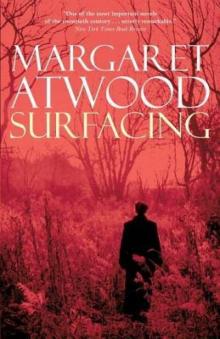 Surfacing
Surfacing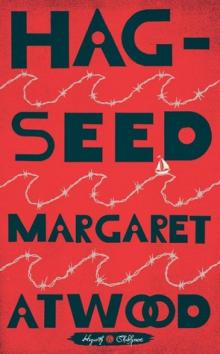 Hag-Seed
Hag-Seed Oryx and Crake
Oryx and Crake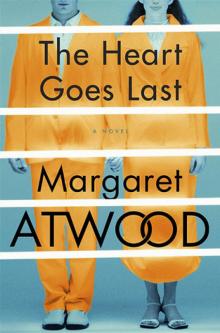 The Heart Goes Last
The Heart Goes Last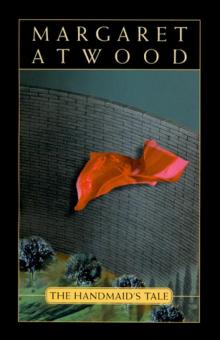 The Handmaid's Tale
The Handmaid's Tale Lady Oracle
Lady Oracle Good Bones and Simple Murders
Good Bones and Simple Murders The Robber Bride
The Robber Bride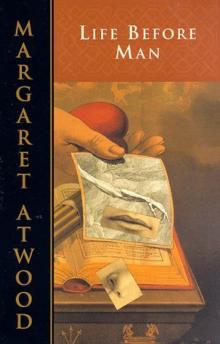 Life Before Man
Life Before Man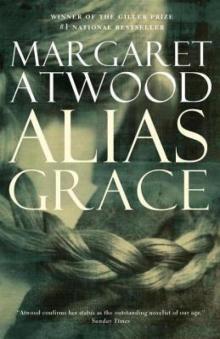 Alias Grace
Alias Grace The Blind Assassin
The Blind Assassin Cat's Eye
Cat's Eye The Testaments
The Testaments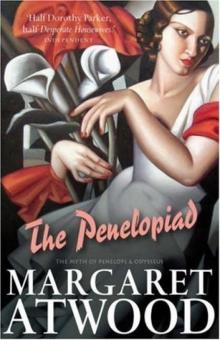 The Penelopiad
The Penelopiad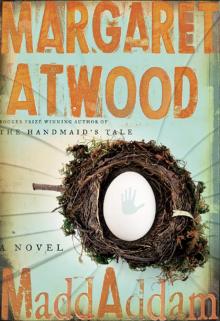 MaddAddam
MaddAddam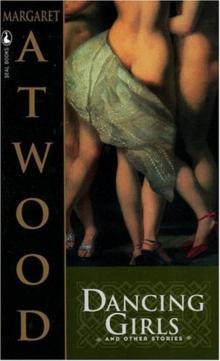 Dancing Girls & Other Stories
Dancing Girls & Other Stories On Writers and Writing
On Writers and Writing Selected Poems II (1976-1986)
Selected Poems II (1976-1986) Wilderness Tips
Wilderness Tips Dearly
Dearly The Tent
The Tent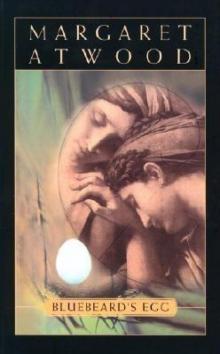 Bluebeard's Egg
Bluebeard's Egg The Edible Woman
The Edible Woman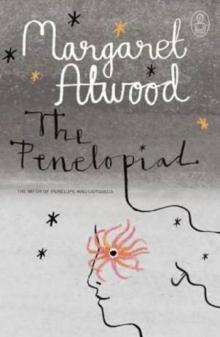 The Penelopiad: The Myth of Penelope and Odysseus
The Penelopiad: The Myth of Penelope and Odysseus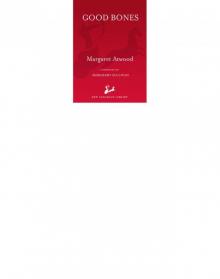 Good Bones
Good Bones I Dream of Zenia with the Bright Red Teeth
I Dream of Zenia with the Bright Red Teeth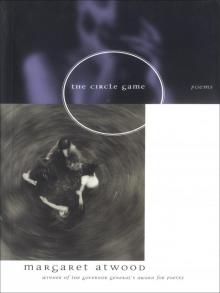 Circle Game
Circle Game Choke Collar: Positron, Episode Two
Choke Collar: Positron, Episode Two Stone Mattress: Nine Tales
Stone Mattress: Nine Tales The MaddAddam Trilogy
The MaddAddam Trilogy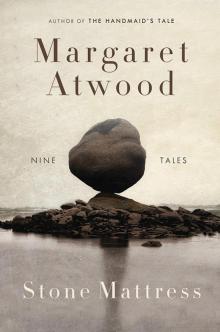 Stone Mattress
Stone Mattress Power Politics
Power Politics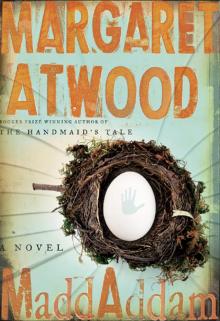 MaddAddam 03 - MaddAddam
MaddAddam 03 - MaddAddam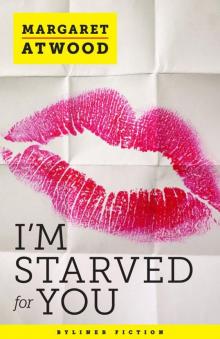 I’m Starved for You (Kindle Single)
I’m Starved for You (Kindle Single) Murder in the Dark
Murder in the Dark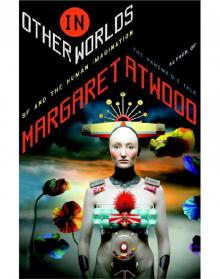 In Other Worlds
In Other Worlds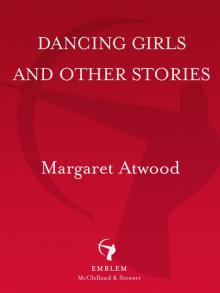 Dancing Girls
Dancing Girls Moral Disorder
Moral Disorder